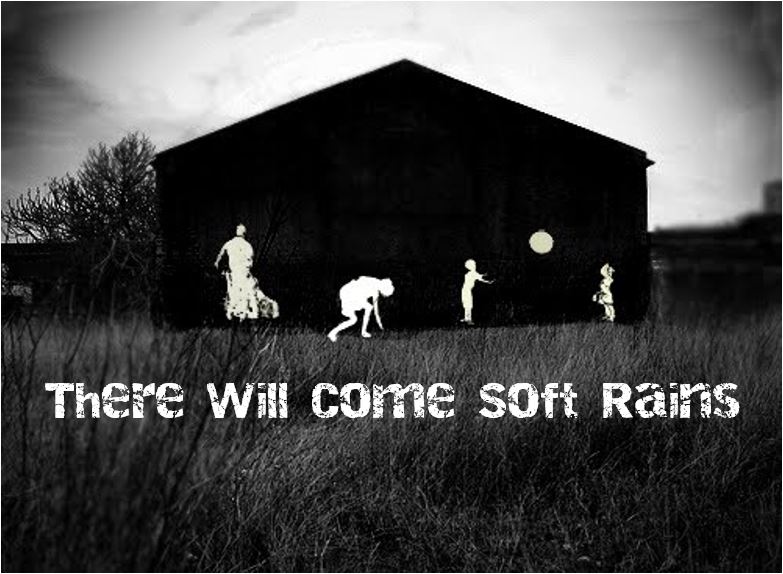This week, I read two short stories: the 1950 Ray Bradbury story “There Will Come Soft Rains” with the main character being a house and the 1986 Stephen King story “The End of the Whole Mess” with a narrator writing until he can’t anymore.
Bradbury’s story really drew me in since there aren’t any actual humans in it. The writing focuses instead on the actions of a technologically advanced house in such a way that I sympathized with it at the end of the story when the house was nearly destroyed. The house is personified throughout, especially when “the house began to die.” Even the fire that destroys the house is personified: it “lay in beds” and “stood in windows”. Through this, I see the telling of a human-on-human war.
Two sides battle it out, leading both to become extinct. The five places on the west wall that weren’t charred depict a family going about normal outdoor activities. You could call them a traditional nuclear family, and their demise possibly being a nuclear bomb of sorts, due to the (albeit inverted) flash burn shadows.
A sense of dread showed through when the house keeps up a clockwork routine with no family to receive its benefits. The only real sign of life comes when the dog, sickly and alone, is let in the house. Once inside, however, it finds none of its previous owners, and the robotic kitchen tortures it literally to death with the smell of cooking food that goes uneaten.
A electronic voice in the house recites a poem by Sara Teasdale to a “Mrs. McClellan”. It turns out this poem has the same name of the short story, “There Will Come Soft Rains“. The last two lines read:
Not one would mind, neither bird nor tree If mankind perished utterly; And Spring herself, when she woke at dawn, Would scarcely know that we were gone.
This evokes the idea that were humans to be extinguished one way or the other, nature wouldn’t so much as notice. (In Bradbury’s story, the only exception to this is the dog that relies on its owners to survive.) The house eventually collapses and all the belongings inside are buried, presumably never to be seen again.
King’s story has an apocalyptic story recounted after the fact by a man who is running out of time to write (and live). The speaker demonstrates awareness of his limited time during his recount of the events leading up to the destruction of humankind. This reads as if I were searching through an abandoned house and found these writings lying alone next to a type writer.
Towards the end, King slowly starts bringing in misspellings and fragmented language to show the speaker’s rapid descent in health. This helps show the decline almost in real-time. The last line “sinned (for the wurld)” plays on the relation between the intentions of man and their outcomes.
The overarching theme behind this story is the unwillful destruction of humanity that began with good intentions. Bobby wanted to quite literally achieve world peace, but due to his time bomb (time volcano?) he didn’t have lengthy research enough to notice the adverse effects of his miracle water. Bobby earnestly wanted to help humanity, but nature didn’t produce the effects he planned. Interestingly, this relates back to the message in “There Will Come Soft Rains” of nature not being inclined to serve humans above the rest of the world.

